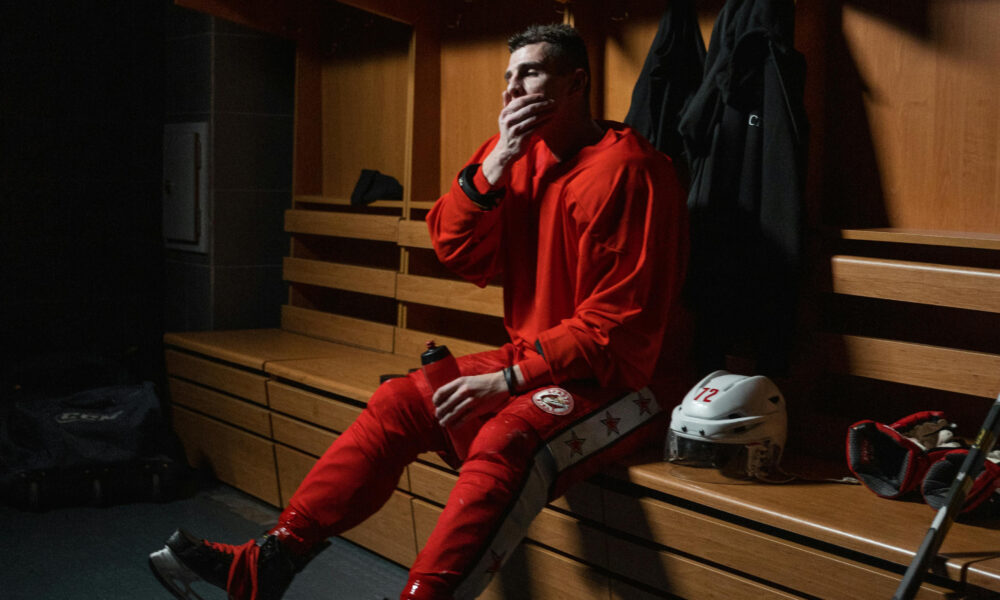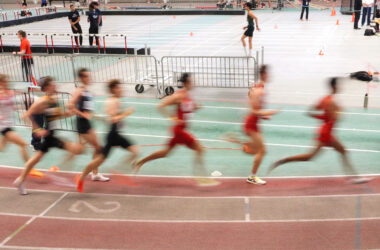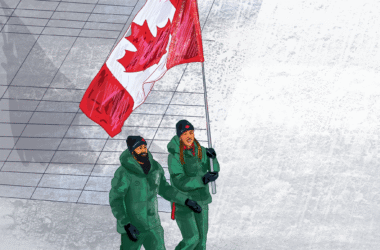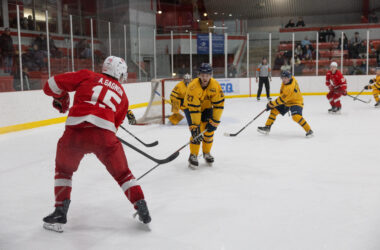On Nov. 22, Western University Associate Professor of Sociology and visiting Eakin Fellow scholar Derek Silva delivered the biannual Eakin lecture. The McGill Institute for the Study of Canada (MISC) awarded the Eakin Visiting Fellowship, which recognizes a PhD-level scholar whose area of study is related to Canada, to Silva for his research in sociocultural studies of sport, labour, racism, and punishment.
Daniel Béland, MISC’s Director, introduced Silva and gave a brief description of his work. Silva opened with a content warning for those in the room who may be sensitive to discussions of abuse before acknowledging his position as a settler scholar operating on Indigenous lands and recognizing the work of Eve Tuck and K. Wayne Yang in identifying “settler moves to innocence.”
In his talk, Silva outlined the scope and pervasiveness of abuse in Canadian sport, concluding the lecture with a call to action for the federal government to open a national inquiry into abuse and harm in Canadian sport. He recounted Canadian sprinter Ben Johnson’s disqualification from the 1988 Summer Olympics, outlining the moral panic that ensued when Canadians realized sport had a “dark side.” The ensuing Dubin Inquiry into drug use in sport found that at every level of Canadian sports, individuals had either accepted or even encouraged the use of performance-enhancing drugs.
“As a Black immigrant to Canada, Johnson was easily framed as a doper and as a bad outcome in Canadian sport, obfuscating the fact that Johnson was enabled by an entire system made up by people who encouraged the very act of using performance-enhancing drugs, a system built and funded by the Canadian government,” Silva said.
Much of this systemic failure, Silva explained, stems from a pressure to win at any cost. He noted that the Dubin Inquiry illuminated the fatal flaw of emphasizing athletic dominance within Canadian sport. Despite Dubin’s warning that this system allows abuse to permeate, the Canadian government has continued to pour money into programs that emphasize winning at all costs.
“[The Own the Podium and RBC Training Ground initiatives] illuminate the very shift Dubin condemned away from mass participation in sport to an obsessive focus on winning athletic competitions at the highest level,” Silva said. “Creating a system in which winning is the only thing that matters creates an environment where harm and abuse are not only made possible, but perhaps even more profound.”
Silva outlined his experiences discussing abuse in Canadian sport with athletes such as Kim Shore and Ciara McCormack who have experienced sports-related abuse firsthand. From medical malpractice in injury treatment to obscured reports of sexual harassment, Canadian sport has fostered a culture where removing barriers to winning matters more than the safety and well-being of athletes.
During a question period following the lecture, Silva explained that this cycle of abuse pervades university sports as well, as education and athletics are largely incompatible.
“A lot of the problems that we see happening in sport in universities can stem from the coupling of education to athletics,” he said. “[This] makes it […] more likely for folks to experience some of the harms and traumas that exist in coaching relationships and administrative relationships.”
The way that Silva sees it, Sport Canada has failed to keep athletes safe, and a survivor-led National Inquiry is the only way to truly hold it accountable and prevent further harm.
“It’s time to rebuild trust in the Canadian sports system, and this has to begin with a full, clear, and robust understanding of the depth and the scope of the problems,” Silva explained. “The only way to understand the scope is, in my view—[and] in the view of countless survivors that I’ve spoken with—the launch of a National Inquiry into harm and abuse, with the objective of gaining the full understanding of just how embedded harm is in is within the Canadian Sport system.”
As a member of Scholars Against Abuse in Canadian Sport––a movement dedicated to securing an independent judicial inquiry to examine reports of abuse across the Canadian sport system––Silva joins more than two dozen Canadian sports organizations in calling on the federal government to act.
Managing Editor Tillie Burlock is a student in Silva’s Fall 2023 CANS401 seminar taught at McGill









